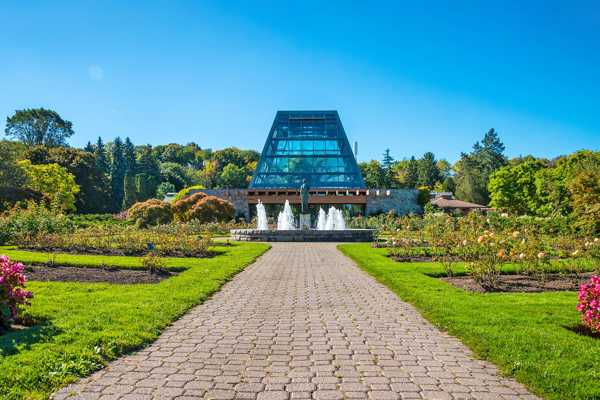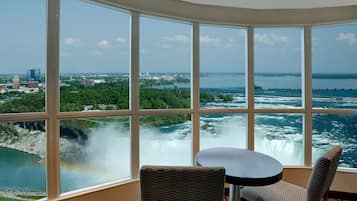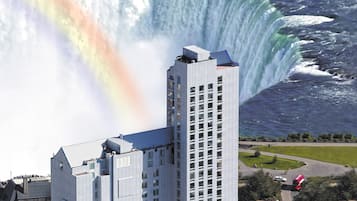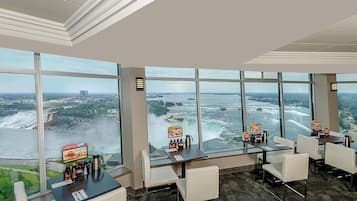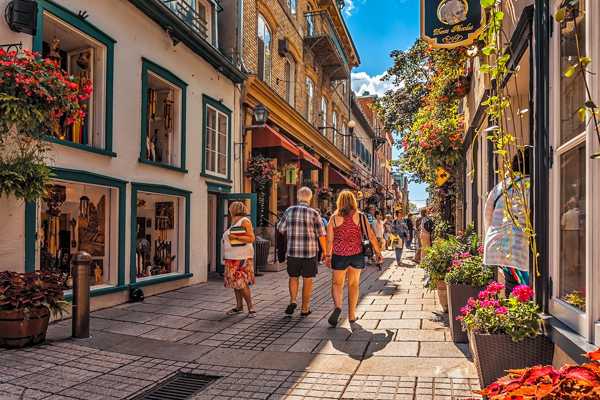There’s no shortage of great places to avoid the crowds in Canada, thanks to the nation’s relatively small population compared to its massive area. However, there’s a big difference between wanting to get away from the tourist hordes and wanting to get away from any sign of civilisation.
When your wanderlust kicks in, the following destinations should be at the top of your bucket list. They will allow you to easily maintain your social distancing by keeping you away from large gatherings while showing you the raw beauty and historical charm of rural Canada –without you needing to be a hardcore outdoorsy type.
- 1
Niagara-on-the-Lake, Ontario
A historical hub where Lake Ontario flows into the Niagara River

- History
- Photo
Niagara-on-the-Lake is the quieter cousin of the world-famous Niagara Falls, which is a short distance to the south. The lake it takes its name from is Lake Ontario, with the tiny town perched on the corner where the lake flows into the Niagara River. Given its location, it has a riviera-type feel to it, as well as a couple of very pleasant waterfront parks.
The town itself is built around a charming historical quarter, with Queen Street being the main hub of bars and restaurants. On the outskirts are a couple of well-storied and well-restored historical sites – mostly forts and military structures that formed the frontlines of the War of 1812. Despite this claim to fame, the lack of a famous waterfall makes Niagara-on-the-Lake much less popular than Niagara Falls, making for a quieter, more peaceful destination.
Map - 2
Churchill, Manitoba
“The Polar Bear Capital of the World”

- Adventure
- Photo
- Unusual
Churchill is a rugged little port town right at the estuary of the Churchill River, where it flows into Hudson Bay. There isn’t much to the town itself – barely a handful of blocks – but the fact that it’s been dubbed “the Polar Bear Capital of the World” makes it a must-visit for wildlife watchers. If you want to see the mighty white bears, head to Churchill in autumn.
There’s more to see, beyond polar bears. The winter can sometimes bring sightings of the Northern Lights, while summer shows the midnight sun. Beluga whales come through the estuary in July/August, seeking the river’s warmer waters. This is also a good time for birdwatchers, who can see more than 270 species of birds within a 40-km radius of the town. If you want some manmade attractions, check out the historical ruins of Cape Merry or the well-preserved wreck of Miss Piggy – a plane that crashed in 1979.
Map - 3
French River, Prince Edward Island
A picturesque setting of peace and calm

- Couples
- Photo
The French River is all about beautiful views, especially from and around the sandstone cliffs on which stands Cape Tyron Lighthouse. There are also a couple of nice, sandy beaches on both of its sides. The settlement itself is a tiny fishing village, but it makes up for its small size with a lot of rural charm.
If you’re looking for a peaceful escape, you’ll certainly find it at French River. There’s a small golf course, a little museum, plenty of quaint cottages, and very little else to see among the rolling farmland.
Map - 4
Gaspé, Quebec
The birthplace of New France

- Adventure
- History
- Photo
The small city of Gaspé, on the shore of the Gulf of St. Lawrence, is a place that combines history with nature to create a very appealing destination. Historically significant as the birthplace of New France (which would eventually span as far south as New Orleans in the USA), it has a good selection of 18th-century architecture and museums to explore.
If you prefer getting out into the wilds of Canada, you won’t have to go far. In fact, Forillon National Park is within the city limits. Motorbike tours take you around the area’s 40 lighthouses along the rugged coastal landscape. Being somewhat remote at 650 km from Quebec, it’s a good place to get away from the crowds without being in total wilderness.
Map - 5
Alma, New Brunswick
A tiny village with some big claims to fame

- Adventure
- Food
Alma in New Brunswick is known for its seafood chowder, being the headquarters of Fundy National Park and having the highest tides in the world. This odd mishmash of claims to fame makes the tiny village a popular destination.
Those huge tides reveal and conceal a massive area of muddy beach where the Upper Salmon River meets the Bay of Fundy. The more popular attraction is the national park, which contains 25 hiking trails, a golf course, a heated saltwater swimming pool and other amenities, as well as an array of typically Canadian nature – think maple trees and moose, among plenty of others.
Map - 6
Nelson, British Columbia
A regal, artistic city on Kootenay Lake

- History
- Photo
- Shoppers
Nelson is known as “The Queen City” because of its excellent array of heritage buildings, most dating from its glory days from a regional silver rush in the 1880s. The main hub – Baker Street – is especially impressive as it received a major overhaul 100 years later, in the 1980s. It went from a ghost town of closed mills to the charming cultural hub and the setting of the Steve Martin movie Roxanne (1987).
The local and community markets are the must-sees in the city, making for lively weekends in summer. Nelson is also the start point for a couple of picturesque local hiking trails, with mountain biking and rock climbing listed as some of its most popular activities.
Map - 7
Lunenburg, Nova Scotia
Largely unchanged since the 1800s

- History
- Photo
Lunenburg is a beautiful historical port town, designated as a UNESCO World Heritage site for looking as much as it did in the 1800s. About 40 buildings in the old town and about a dozen more in the slightly-less-old New Town are listed on the Canadian Register of Historic Places.
Highlights in Lunenburg include the Zion Evangelical Lutheran Church and Knaut-Rhuland House. The harbour is also very picturesque. You might recognise bits of the town from movies and TV shows as vibrant old buildings make popular backdrops.
Map - 8
Rocky Harbour, Newfoundland
The gateway to Gros Morne National Park

- Adventure
- Photo
Rocky Harbour is a relatively unremarkable little town but acts as a gateway to Gros Morne National Park, which is a World Heritage site. The town has a wildlife museum and is home to a tour operator or 2, making it a great introduction to this strikingly beautiful part of Canada.
The park itself is among the biggest in Atlantic Canada, with towering mountains, freshwater fjords, about 20 marked hiking trails, and a wide variety of interesting local wildlife.
Map - 9
Kananaskis Country, Alberta
A little-known gem for wildlife watchers

- Adventure
- Photo
Kananaskis Country is a park system just west of Calgary that’s often overshadowed by its more famous neighbour – Banff National Park. It’s great for hiking, mountain biking, climbing and fishing in summer or cross-country skiing in winter.
What makes Kananaskis Country really stand out from the many parks around it is its wildlife. Several endangered species call the region home, including grizzly bears, cougars, westslope trout, and bighorn sheep. Up to 800 golden eagles pass through the area each day during their migration flights, too.
Map - 10
Tangier, Nova Scotia
Get off the grid and on the water

- Adventure
- Couples
- Photo
If you’re looking for a place to go off-the-grid and enjoy a digital detox, Tangier in Nova Scotia might be for you. The village is so small that the post office is considered a highlight attraction and so remote that it barely has any mobile signal.
While you’re enjoying the peace and quiet, far from the madding crowd, Tangier also offers fantastic conditions for giving sea kayaking a try, with beautiful scenery to explore. There are even a couple of little beaches in the area.
Map


